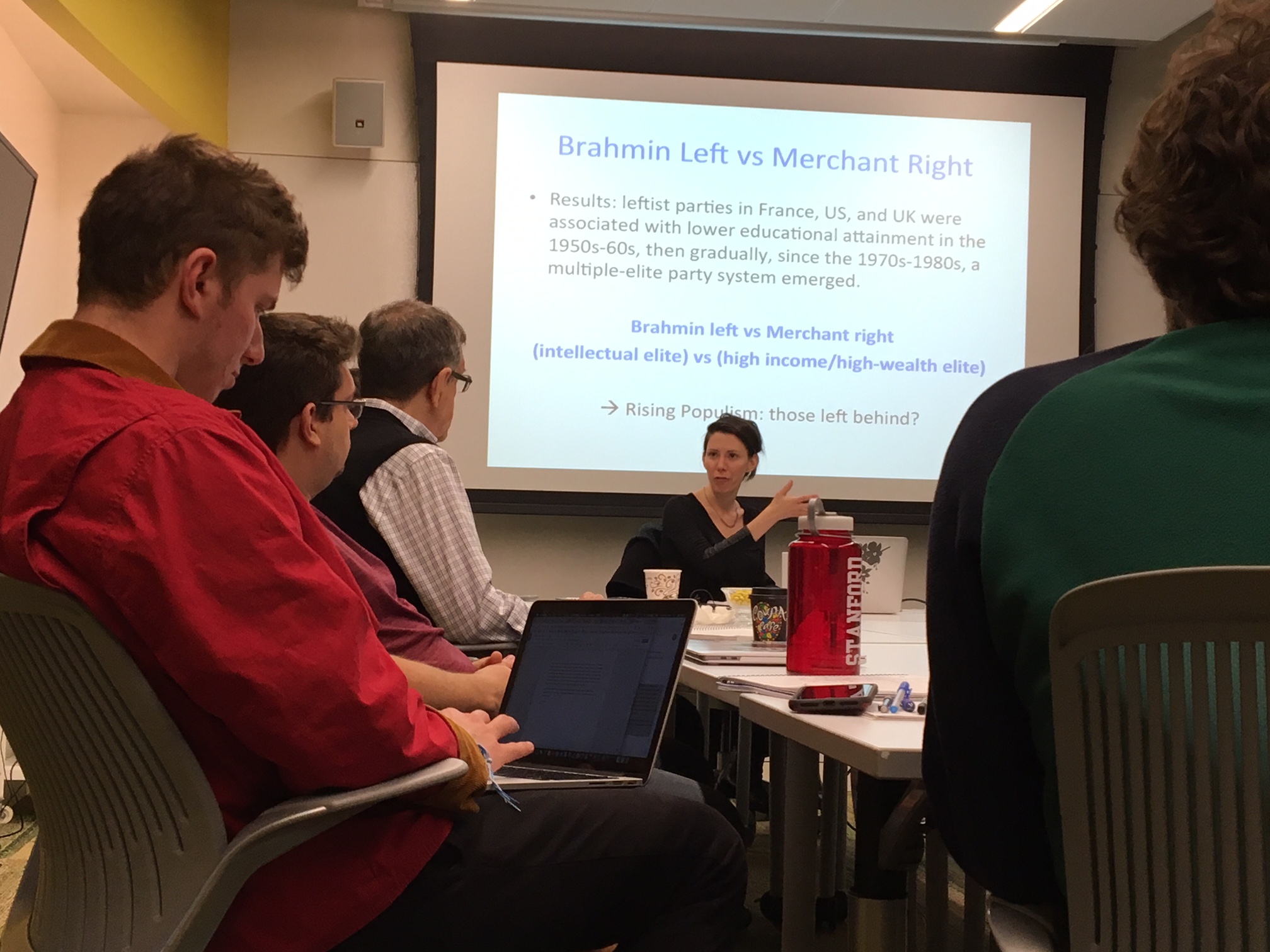The NGOization of Brazilian Civil Society and Implications for Civic Participation in Emerging Economies
Topics on Brazilian Education Seminars:
The NGOization of Brazilian Civil Society and Implications for Civic Participation in Emerging Economies
Date:
Tuesday, February 27, 2018 - 9:00am to 10:15am
Michelle Reddy Stanford PhD candidate in Education proposes: While civil society has been praised for its ability to shift the balance of social and political power away from the state, often omnipresent in societies transitioning to democracy, does the “NGOization” of civil society eventually lead local and national NGOs to become less politicized, and more concerned with public policy? Specialization and increased demands for monitoring, evaluation, and accountability lead NGOs to attract more middle class professionals to its ranks rather than the prototypical activist that swelled the ranks of civil society during democratization movements. The professionalization of civil society organizations leads to more specialized, service-oriented activities and local capacity, but may signal a move away from grassroots social movements, and towards relationships with state institutions and public officials through the institutionalization of civil society as noted by Vuković (2015) regarding Serbia, and da Glória Gohn(2010) with reference to Brazil.

"I test the hypothesis that the professionalization of civil society and subsequent move from advocacy towards service delivery in education and health increases middle class participation in third sector organizations cross-nationally. Using panel data from the World Values Survey, I examine the influence of social class on voluntary association participation (and types of voluntary associations) over time across middle-income Latin American and African democracies, particularly given Tocqueville’s assertion that the “art of associating together” should grow in proportion with the participation of various social groups (Toqueville, 1835). In addition, this study benefits from an ongoing cross-case comparison of interview data of NGOs responding to the Ebola crisis in West Africa with the Zika crisis in Brazil", Michelle Reddy .
Suggested additional readding:
Article from The New Yourk Times by Mark Weisbrot - Why Is It So Hard for Democracy to Deal With Inequality?
The NYT article refers to Piketty's Jan 2018 powerpoint: http://piketty.pse.ens.fr/files/Piketty2018PoliticalConflict.pdf
The article is a reveiw of a book cquoted by Michelle's dissertation: http://web.mit.edu/posner/www/papers/9604.pdf

